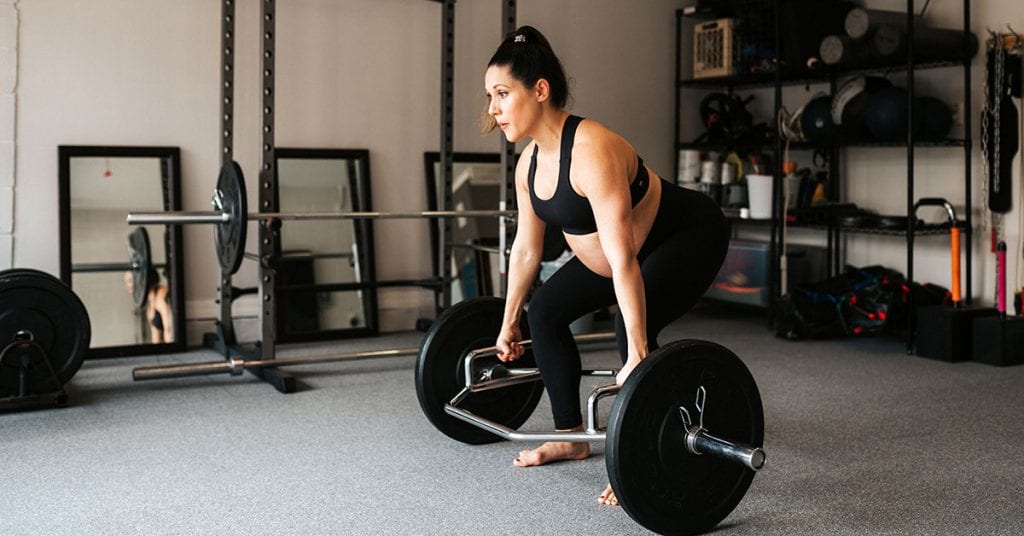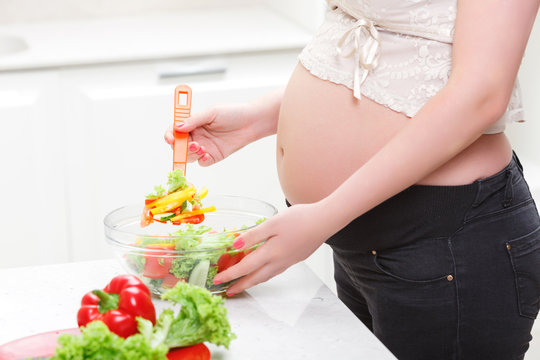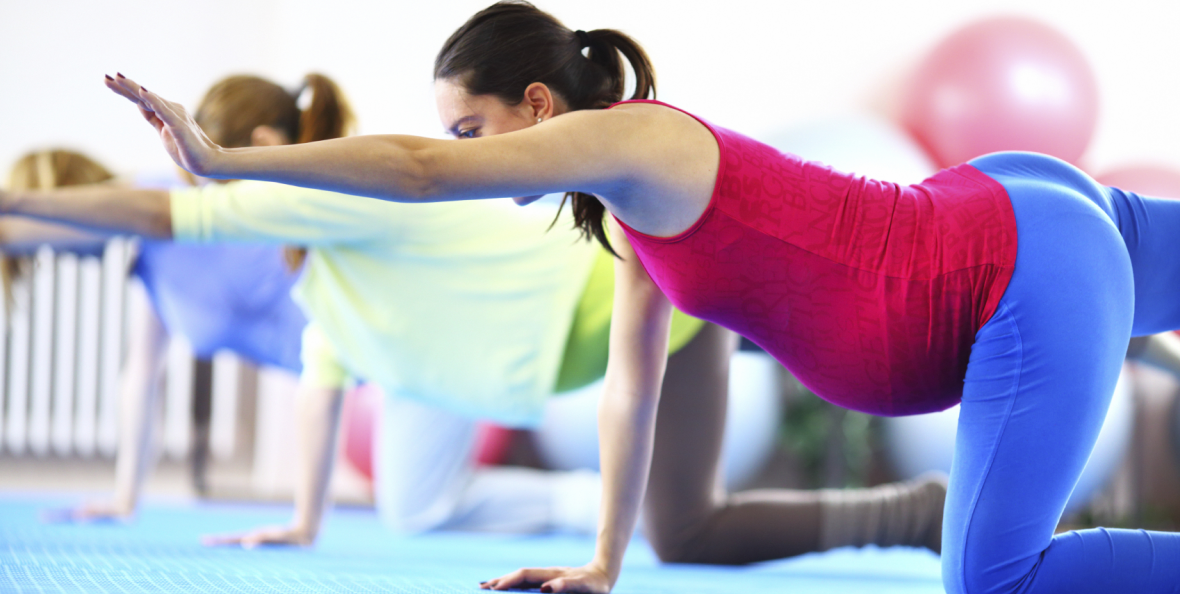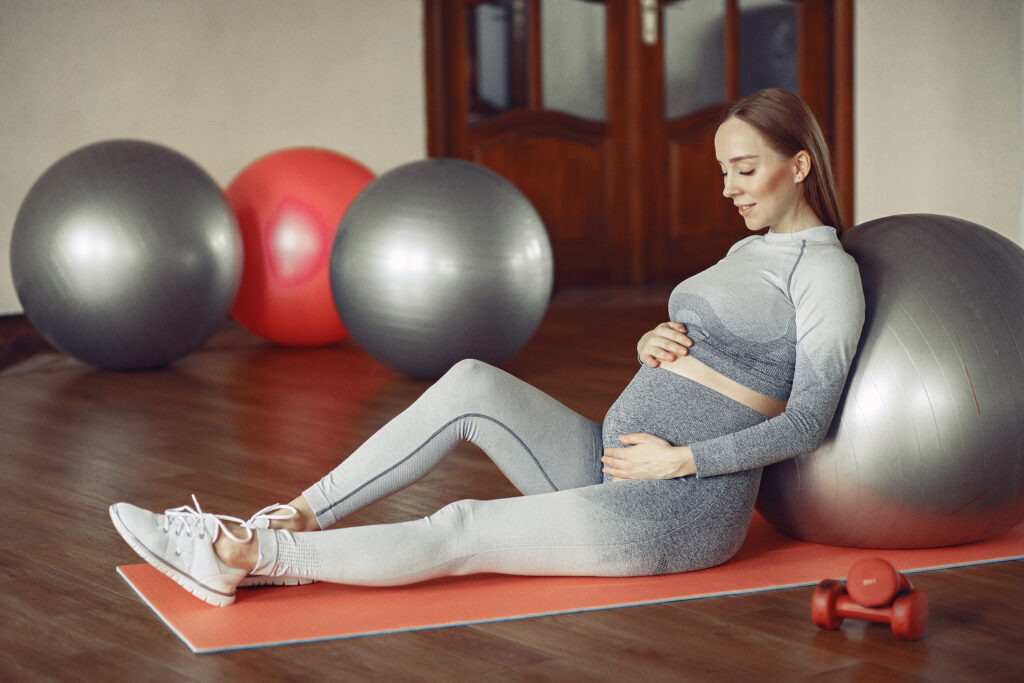Pregnancy is a beautiful journey, but it can also be challenging for bodybuilding enthusiasts who are used to an active lifestyle. The good news is that exercising during pregnancy can help you stay fit and healthy while preparing your body for childbirth. In this blog post, we will discuss the importance of exercising during pregnancy, guidelines and precautions for pregnancy workouts, and best bodybuilding workouts for pregnant women.
Importance of Exercising During Pregnancy
Exercising during pregnancy has many benefits for both the mother and the developing baby. Here are some reasons why exercising during pregnancy is important:
- Improves cardiovascular health: Exercise helps to strengthen the heart and improve blood circulation, which is essential for both the mother and the baby.
- Reduces risk of gestational diabetes: Regular exercise can help to reduce the risk of gestational diabetes, which is a type of diabetes that occurs during pregnancy.
- Reduces risk of complications during childbirth: Women who exercise during pregnancy are less likely to experience complications during childbirth such as premature birth, preeclampsia, or cesarean section.
- Helps with weight management: Exercising during pregnancy can help to manage weight gain and prevent excessive weight gain, which can lead to complications during pregnancy and childbirth.
- Improves mood and mental health: Exercise is a natural mood booster and can help to reduce stress, anxiety, and depression during pregnancy.
- Improves sleep quality: Regular exercise can help to improve sleep quality during pregnancy, which is essential for both the mother and the baby.
It is important to consult with a healthcare provider before starting any exercise program during pregnancy and to follow safety guidelines for exercising during pregnancy.
For example, prenatal yoga or low-impact cardio can be beneficial for maintaining fitness levels without overexerting yourself. Remember to listen to your body and adjust your workout routine as needed throughout pregnancy. Staying active during this time will not only benefit you but also contribute positively to your baby’s development.
Best Bodybuilding Workouts for Pregnant Women
Maintaining an exercise routine during pregnancy can help improve overall health and reduce the risk of gestational diabetes and pre-eclampsia. However, before initiating any workout regime, it is important to consult a doctor.

#Resistance Training With Weights
Resistance training with weights is a safe and effective way for pregnant bodybuilding enthusiasts to maintain muscle mass and strength. However, it’s important to use lighter weights and avoid exercises that put too much stress on the abdominal muscles. Bodyweight exercises such as:
- Squats
- Lunges
- Push-ups are also effective for maintaining strength during pregnancy.
So if you’re a bodybuilding enthusiast who is pregnant, don’t hesitate to incorporate resistance training with weights into your workout routine to stay fit and healthy throughout your pregnancy.
#Bodyweight Exercises for Pregnant Bodybuilders
Pregnant bodybuilding enthusiasts should always consult with their healthcare provider before starting any workout program. However, bodyweight exercises can be a great option for pregnant women as they don’t require any equipment and can be done at home.
- Lunges: Like squats, lunges target the lower body and can be done with or without weights. Keep your movements controlled and avoid lunging too deeply as your pregnancy progresses.
- Planks: Planks are a fantastic exercise for strengthening the core and can be done throughout pregnancy. Begin with a basic plank on your forearms and toes and hold for 10-20 seconds, gradually increasing the time as you become stronger.
- Glute bridges: Glute bridges are a great exercise for strengthening the glutes and hamstrings. Begin lying on your back with your knees bent and feet flat on the floor. Lift your hips up toward the ceiling, squeezing your glutes at the top, and then lower back down.
#Modified Yoga and Pilates Workouts
Pregnancy can be a challenging time for bodybuilding enthusiasts, but with modified workouts, expectant mothers can stay fit and healthy.
- Seated Yoga: If you have difficulty getting up and down from the floor, or have limited mobility, seated yoga poses can be a great option. Some seated yoga poses include seated spinal twists, seated forward folds, and seated hip openers.
- Chair Yoga: Chair yoga is another modification for those who have difficulty getting up and down from the floor. This type of yoga utilizes a chair as a prop, and can include seated poses, standing poses, and balance poses.
- Wall Yoga: Wall yoga utilizes a wall for support and can help improve alignment and balance. Some wall yoga poses include wall squats, wall planks, and wall inversions.
- Pilates with Props: Pilates can be modified using props such as resistance bands, balls, and foam rollers. These props can help to provide additional support, resistance, or assistance in performing certain movements.
- Modified Sun Salutations: Sun salutations are a series of yoga poses that are often used as a warm-up sequence. If you have limited mobility, you can modify the poses by performing them slowly, using a chair for support, or by reducing the range of motion.
With the right approach and guidance, pregnant women can continue to stay active and healthy throughout their pregnancy while still maintaining their passion for bodybuilding.
Nutritional Considerations for Pregnancy Workouts

- Hydration: Adequate hydration is crucial during pregnancy workouts. Pregnant women should aim to drink at least 8-10 cups of water per day, and more if they are exercising. Dehydration can lead to dizziness, headaches, and contractions.
- Protein: Protein is important for building and repairing muscle tissue, as well as for fetal growth and development. Pregnant women should aim to consume 70-100 grams of protein per day, depending on their individual needs.
- Iron: Iron is essential for the production of red blood cells and the delivery of oxygen to the baby. Pregnant women should aim to consume 27 milligrams of iron per day. Iron-rich foods include red meat, poultry, fish, beans, lentils, and fortified cereals.
- Calcium: Calcium is important for the development of strong bones and teeth in the baby. Pregnant women should aim to consume 1,000 milligrams of calcium per day. Good sources of calcium include dairy products, leafy greens, tofu, and fortified foods.
- Carbohydrates: Carbohydrates are the primary source of energy for the body, and pregnant women need to consume enough to support their increased energy needs. Whole grains, fruits, vegetables, and legumes are good sources of complex carbohydrates.
- Fats: Fats are important for the absorption of certain vitamins and minerals, and for the development of the baby’s brain and nervous system. Pregnant women should aim to consume healthy fats such as those found in nuts, seeds, avocados, and fatty fish.
It is also important to note that pregnant women should avoid certain foods and drinks during pregnancy workouts, such as alcohol, caffeine, and processed or high-sugar foods. Consultation with a registered dietitian or healthcare provider is recommended to develop a tailored nutritional plan for each individual pregnancy.
Importance of Proper Nutrition for Pregnant Bodybuilders
Proper nutrition is crucial for pregnant bodybuilders who want to maintain a healthy pregnancy while continuing to support muscle growth. It’s important to consume enough protein, healthy fats, and carbohydrates to fuel both the mother and growing baby. In addition, pregnant women should ensure they are getting enough vitamins and minerals through a balanced diet or supplements as needed.
Consulting with a healthcare professional or registered dietitian can help create an individualized nutrition plan for pregnant bodybuilders. This plan can take into account any specific dietary needs or restrictions that may be present during pregnancy.
Addressing Common Concerns About Pregnancy Workouts

Here are some common concerns and how to address them:
- Is it safe to exercise during pregnancy?
Yes, it is generally safe to exercise during pregnancy. In fact, the American College of Obstetricians and Gynecologists (ACOG) recommends that pregnant women get at least 150 minutes of moderate-intensity aerobic exercise per week. However, it’s important to talk to your doctor before starting any exercise program, especially if you have a medical condition or complications during pregnancy.
- Can exercising during pregnancy harm my baby?
There is no evidence to suggest that exercise during pregnancy harms the baby. In fact, exercise can be beneficial for both you and your baby. Regular exercise can help improve your blood pressure, reduce your risk of gestational diabetes, and improve your mood.
- What if I’ve never exercised before?
If you’ve never exercised before, it’s still safe to start a moderate exercise program during pregnancy. However, it’s important to start slowly and gradually increase your activity level. Walking, swimming, and prenatal yoga are great low-impact exercises to start with.
- What if I feel too tired to exercise?
Fatigue is common during pregnancy, but exercise can actually help boost your energy levels. Start with short sessions of exercise and gradually increase your workout time as your energy levels improve.
- What if I experience pain or discomfort during exercise?
If you experience pain or discomfort during exercise, stop and rest. Pain or discomfort can be a sign that you’re pushing yourself too hard or that there is an underlying medical issue. Talk to your doctor if you have any concerns about pain or discomfort during exercise.
Overall, exercise during pregnancy can be safe and beneficial for both you and your baby. Just be sure to talk to your doctor before starting any exercise program and listen to your body during your workouts.
Let’s Sum Up
Incorporating pregnancy workouts into your routine is not just important for your physical health but also for your mental well-being. However, it is crucial to follow the right guidelines and precautions and listen to your body’s needs. Opt for resistance training with weights, bodyweight exercises, or modified yoga and Pilates workouts that are safe during pregnancy. It is equally important to maintain a balanced diet rich in nutrients required for optimal health and fitness during pregnancy.



